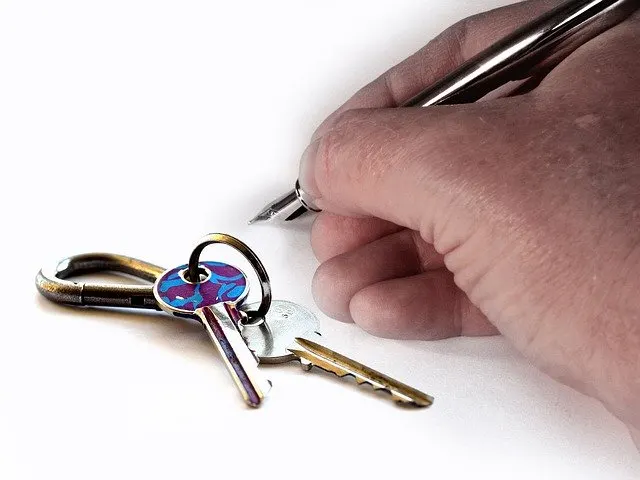Did the landlord sell the property that you are renting? Are you unsure of what to do next? We have found the answers to some of the most common questions regarding a tenant’s rights in these situations. We are here to help you get informed and find the best tenant help!
The landlord owns the property and they have the right to sell it whenever they want. However, that does not mean that they can just kick you out on the street or cause problems with your security deposit. As a tenant, there are rights that you have and should be aware of.

Talk to a Lawyer!
Got specific questions about your situation? Low Income Relief is a team of researchers and can’t give legal advice… but our friends at JustAnswer may be able to help! Click on over to chat with a lawyer now.
The landlord sold the house, does that mean that I have to move?
If there is a new owner involved, that does not necessarily mean that you will have to immediately start looking for a new place to live. Often times, new owners will be accommodating with offering a new lease to current tenants once the sale of the property is complete.
It is important to communicate with your landlord as each may have their own expectations as well. However, this also does not mean that you will be satisfied with the new owners’ agreements.
If I do have to move out of my rental, how long will I have to do so?
This is often dependent on the lease that you have signed. One example would be a month-to-month lease as is common for most states. A 30 day written notice to vacate is typically written to the tenant. Some areas have different laws, so be sure to check your lease agreement and seek information for your local area.
Another example would be a fixed-term lease agreement, this includes leases extending for 1 or 2 years. You likely have the right to continue living on the property until the lease ends, even once the sale is completed. The new owner will have to respect your legally binding contract. Month to month agreements may also transfer!
What is a ‘lease termination due to sale’ and where do I find it in my agreement?
A lease termination due to sale agreement means that the landlord technically has the right to end the lease early if a property sells.
Long term leases may be impacted by this as well as the protection behind this clause is in favor of the landlord. This often means that even if you still have weeks or months left on your agreement, you will still only be granted the standard 30 day notice.
It is best to speak with your landlord when you first sign your lease so as to be fully aware of the agreement you sign and will help both parties prepare for future occurrences.
Do I have the right to buy the property first as the current tenant?
This may vary from state to state, but there are some laws that require landlords to send letters of intent to sell to current tenants as well as listing information regarding the property of interest. Often times tenants will have anywhere between 7 to 30 days to make their decision, even after the property goes on the market for sale. This is called the “right of first refusal.”

Is my landlord required to help me relocate?
Sometimes your landlord may have to provide assistance with vacating tenants. This usually means that the tenant will receive an allowance or relocation payment that can easily be found in your state’s landlord and tenant laws. Although negotiable, a tenant must qualify as low income in some states in order to receive any sort of allowance.
What is a lease termination payout and how does it affect tenants?
Sometimes, landlords can offer current tenants a lease payout if they would like them to leave sooner than the lease agreement states. This is referred to as “cash for keys” and details may vary in different locations.
How can I make sure my landlord respects my rights as a tenant?
If you feel that your landlord is violating your rights as a tenant while still living in your rental, remember that you still have tenant rights until you actually vacate the location. Sometimes the process of selling a property distracts the landlord from their responsibilities as well and communication is important during this time.
Check your local laws and contact a lawyer for more help and information on what you should do next. Tenant’s have the right to file a suit in small claims court for any type of retaliation from the landlord as well as the right to break the lease based on neglect of duties.
As a tenant, what happens with my security deposit?
It is legally required for the landlord to return your security deposit upon vacating. However, it is typical for any repair or cleaning expenses to first be taken out per your lease agreement. The landlord usually has anywhere from 14 to 60 days to send you a check depending on your location and state laws.
Be sure to remove all property and thoroughly clean the rental before returning your keys. It is always best to do one last walk through accompanied by your landlord to ensure that everything is as you left it and to the landlord’s expectations.
Should my landlord give me notice in advance of property showings?
It is legally required for landlords to give notice of showings at least 24 to 48 hours in advance to ensure that the tenant is able to tidy up and accommodate as necessary. A “reasonable notice” agreement is typically established between tenants and owner’s and the length of time may vary from state to state. This also requires showings to occur at reasonable hours of the day, although flexibility is also considered reasonable for either party.
It should also be noted that tenants are not legally required to leave the property during any type of visit or keep the space clean. Landlords may try to negotiate a compromise to avoid any problems.

